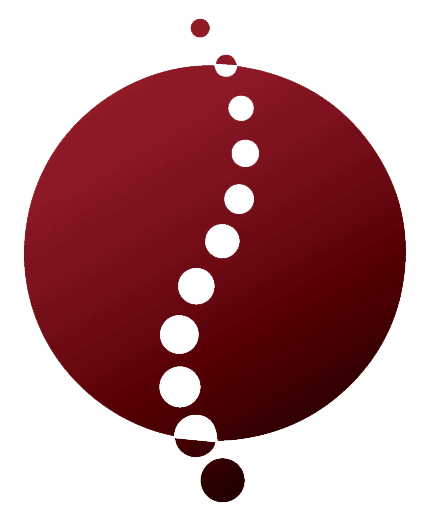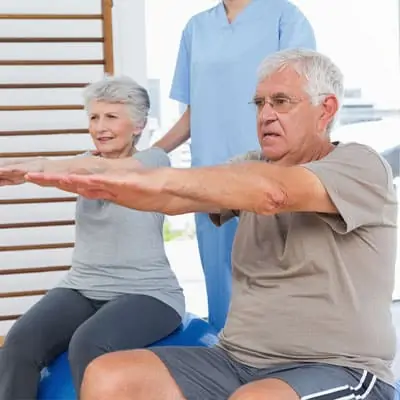Introduction to Functional Movement Disorders Physiotherapy
Understanding Functional Movement Disorders
Functional Movement Disorders (FMD) are a group of conditions characterized by abnormal movement patterns that are not due to structural neurological damage but rather to functional issues within the nervous system. These disorders can manifest as tremors, spasms, or jerky movements, significantly impacting a person’s quality of life. Understanding the underlying mechanisms of FMDs is crucial for effective treatment and management.
Symptoms of FMDs vary widely and can often mimic other neurological disorders. Common symptoms include:
- Involuntary movements
- Muscle spasms
- Tremors
- Difficulty walking
We take a comprehensive approach to assessing and diagnosing FMDs, ensuring that our patients receive an accurate diagnosis and the most effective treatment plan tailored to their needs. For more information on related conditions, visit our section on neuromuscular rehabilitation.
Importance of Physiotherapy in Managing Functional Movement Disorders
Physiotherapy plays a pivotal role in the management and treatment of Functional Movement Disorders. Through specialized techniques and interventions, we aim to retrain the nervous system, improve movement patterns, and enhance overall function. Our physiotherapy programs are designed to address the unique needs of each patient, promoting recovery and improving quality of life.
Key benefits of physiotherapy for FMDs include:
- Improved mobility
- Reduced muscle spasms
- Enhanced coordination and balance
- Increased strength and flexibility
Our approach involves a combination of personalized exercise programs, cognitive-behavioral techniques, and regular follow-ups to monitor progress and adjust treatment plans as needed. By addressing both the physical and psychological aspects of FMDs, we empower our patients to take an active role in their recovery.
Benefits of Physiotherapy for FMDs
| Benefit | Description |
|---|---|
| Improved Mobility | Helps patients regain the ability to move freely and with ease. |
| Reduced Spasms | Techniques aimed at reducing involuntary muscle contractions. |
| Enhanced Coordination | Focuses on improving the control of movements. |
| Increased Strength | Targets muscle strengthening through specialized exercises. |
For more details on how physiotherapy can assist with other neurological conditions, see our articles on stroke rehabilitation, parkinsons disease rehabilitation, and multiple sclerosis physiotherapy.
By incorporating evidence-based practices and a patient-centered approach, we ensure that individuals with Functional Movement Disorders receive the highest standard of care, optimizing their path to recovery.
Assessment and Diagnosis
Effective assessment and diagnosis are the cornerstones of a successful functional movement disorders physiotherapy program. Let’s explore the crucial steps involved.
Initial Evaluation by Physiotherapist
During the initial evaluation, our physiotherapists conduct a comprehensive assessment to understand the patient’s condition. This evaluation typically includes:
- Medical History: Gathering detailed information about the patient’s medical background, including any prior neurological conditions and treatments received.
- Physical Examination: Assessing the patient’s movements, posture, and musculoskeletal health to identify functional impairments.
- Functional Assessment: Evaluating the patient’s day-to-day activities and the impact of movement disorders on their quality of life.
The initial evaluation helps us create a clear picture of the patient’s current condition and what specific interventions may be needed.
Collaborative Approach with Healthcare Providers
Collaboration is key in managing functional movement disorders. Our physiotherapists work in tandem with other healthcare providers to ensure comprehensive care. This approach involves:
- Interdisciplinary Meetings: Regular discussions with neurologists, psychologists, and other specialists to share insights and update treatment plans.
- Shared Goals: Aligning treatment objectives across the care team to provide a cohesive and effective physiotherapy program.
- Ongoing Communication: Continuous dialogue with healthcare providers to monitor progress and make necessary adjustments.
This collaborative approach ensures that patients receive well-rounded care tailored to their specific needs.
| Assessment Component | Role |
|---|---|
| Medical History | Understand patient’s background |
| Physical Examination | Identify physical impairments |
| Functional Assessment | Evaluate impact on daily life |
| Interdisciplinary Meetings | Share insights and updates |
| Shared Goals | Align treatment objectives |
| Ongoing Communication | Monitor progress |
For more information on neurological physiotherapy, explore our other articles on stroke rehabilitation, multiple sclerosis physiotherapy, and parkinsons disease rehabilitation.
Tailored Treatment Plans
In our approach to managing functional movement disorders, we prioritize creating tailored treatment plans that address the unique needs of each individual. Two key components of these plans are personalized exercise programs and cognitive-behavioral techniques.
Personalized Exercise Programs
Personalized exercise programs are fundamental in functional movement disorders physiotherapy. These programs are designed to help improve mobility, strength, and coordination, while addressing specific movement difficulties experienced by the individual.
Our physiotherapists conduct comprehensive assessments to develop these exercise programs. This includes evaluating the patient’s physical abilities, movement patterns, and overall health. Based on this assessment, we create customized exercise routines that target problem areas and promote neurological recovery.
Typical components of a personalized exercise program include:
- Strengthening exercises: Focused on building muscle strength to support movement.
- Flexibility exercises: Aimed at improving the range of motion.
- Balance and coordination exercises: Designed to enhance stability and prevent falls.
These exercises are adjusted regularly to ensure they remain effective as the patient’s condition evolves. Regular follow-ups allow us to monitor progress and make necessary modifications to optimize outcomes. For detailed insights, explore our article on balance and gait training.
Cognitive-Behavioral Techniques
Cognitive-behavioral techniques are an integral part of our treatment plans for functional movement disorders. These techniques address the psychological components of movement disorders, aiming to modify behaviors and thought patterns that may contribute to symptoms.
Our approach includes:
- Cognitive restructuring: Identifying and challenging negative thought patterns related to movement abilities.
- Behavioral activation: Encouraging engagement in activities that promote positive movement experiences.
- Relaxation training: Techniques such as deep breathing and progressive muscle relaxation to reduce anxiety and improve movement control.
Implementing cognitive-behavioral techniques can significantly enhance the effectiveness of physiotherapy by addressing both physical and psychological aspects of functional movement disorders. These techniques are customized to suit the individual needs of our patients, ensuring a holistic approach to treatment.
By combining personalized exercise programs and cognitive-behavioral techniques, we aim to provide a comprehensive treatment plan that promotes recovery and enhances the quality of life for individuals with functional movement disorders.
For more information on related treatments, visit our articles on stroke rehabilitation or multiple sclerosis physiotherapy.
Techniques and Interventions
Our work in physiotherapy for functional movement disorders involves employing specialized techniques and interventions designed to improve mobility and function. Two pivotal methods in our approach are movement re-training and mind-body connection techniques.
Movement Re-Training
Movement re-training focuses on re-establishing normal movement patterns that have been disrupted by functional movement disorders. This technique is essential in restoring bodily function and enhancing quality of life. Through the use of specific exercises and tasks, we aim to re-train the nervous system and rebuild muscle memory.
Key Aspects of Movement Re-Training:
- Task-Oriented Exercises: Practicing everyday activities to reinforce proper movement.
- Balance and Gait Training: Enhancing stability and walking patterns. More insights can be found in our article on balance and gait training.
- Neuroplasticity Training: Using repetitive activities to promote neural adaptation. For more details, see neuroplasticity training.
| Exercise Type | Goals | Frequency |
|---|---|---|
| Task-Oriented | Improve daily activities | 3-4 times/week |
| Balance Training | Enhance stability | 2-3 times/week |
| Repetitive Drills | Promote neuroplasticity | Daily |
Mind-Body Connection Techniques
Mind-body connection techniques are integral to our physiotherapy regimen for functional movement disorders. These techniques aim to harness the power of the mind to influence physical health, helping patients manage symptoms more effectively.
Key Techniques:
- Cognitive-Behavioral Techniques: Adjusting thought patterns to reduce movement-related fears.
- Relaxation Techniques: Reducing stress and anxiety to improve movement.
- Biofeedback: Using visual and auditory feedback to control bodily functions.
Benefits of Mind-Body Techniques:
- Better symptom control
- Enhanced overall well-being
- Reduced functional impairment
Our goal is to integrate these techniques into a comprehensive treatment plan that empowers our patients. For those seeking additional information on other neurological conditions, we offer resources on stroke rehabilitation, multiple sclerosis physiotherapy, and Parkinson’s disease rehabilitation.
By employing these techniques, we strive to provide effective physiotherapy for functional movement disorders, ultimately guiding our patients towards improved mobility and a better quality of life.
Progress Monitoring and Adjustments
In dealing with functional movement disorders physiotherapy, monitoring progress and making necessary adjustments are crucial elements for effective treatment.
Regular Follow-Ups
We prioritize regular follow-ups to keep track of the progress of our patients. These follow-ups allow us to evaluate the effectiveness of the prescribed treatment plans and make data-driven decisions for future interventions. During each follow-up session, we assess various parameters such as mobility, pain levels, and functional abilities.
| Follow-Up Schedule | Parameters Assessed | Frequency (Weeks) |
|---|---|---|
| Initial Follow-Up | Mobility, Pain Levels, Functional Abilities | 2 |
| Mid-Treatment Follow-Up | Progress Evaluation, Exercise Effectiveness, Patient Feedback | 4 |
| Long-Term Follow-Up | Sustained Improvements, Adjustments Needed, Future Goals | 8 |
Consistent monitoring helps us identify any potential issues early on and address them promptly to prevent further complications.
Modifying Treatment Plans as Needed
Every patient is unique and so is their journey with functional movement disorders physiotherapy. As such, we are committed to modifying treatment plans as needed based on individual progress and specific needs. Personalized adjustments help ensure that each patient receives the most effective care tailored to their condition and response to treatment.
Key factors we consider when modifying treatment plans:
- Progress Metrics: Regularly measuring improvements in movement and function.
- Patient Feedback: Gathering insights from the patients about their comfort levels and any difficulties they are experiencing.
- Healthcare Collaboration: Working closely with other healthcare providers to ensure a comprehensive and cohesive approach to treatment.
For those seeking information on related neurological physiotherapy interventions, you might find our guides on stroke rehabilitation and multiple sclerosis physiotherapy helpful.
Through adaptive and responsive care plans, we aim to empower our patients on their path to recovery, ensuring they receive the support necessary to overcome their functional movement disorders.
For more techniques and tips, consider exploring articles such as balance and gait training and functional electrical stimulation (fes) as part of our comprehensive neurological physiotherapy services.
Empowering Recovery
Empowering individuals with functional movement disorders is a fundamental aspect of our approach to physiotherapy. This empowerment comes through supportive care and the promotion of self-care practices.
Supportive Care and Resources
Supportive care is crucial for individuals undergoing functional movement disorders physiotherapy. Our role extends beyond the direct treatment of physical symptoms; we ensure that our patients have access to the necessary resources and support systems.
We work closely with a multidisciplinary team to provide comprehensive care. This collaborative approach often includes neurologists, psychologists, and other specialized therapists. By doing so, we can address all aspects of our patients’ conditions, from the physical to the psychological.
In terms of resources, we offer educational materials that help our patients understand their condition better. This includes:
- Informational brochures and booklets
- Online resources and websites
- Support group recommendations
We also guide our patients towards relevant external support systems, such as community groups and networks that specialize in neurological conditions. These support systems can play a significant role in fostering a sense of community and providing encouragement.
Encouraging Self-Care Practices
Encouraging self-care practices is essential to the long-term management of functional movement disorders. We educate our patients on the importance of self-care and equip them with the tools and techniques they need to take control of their recovery journey.
Components of Effective Self-Care
| Self-Care Element | Description |
|---|---|
| Regular Exercise | Engaging in prescribed physical activities to maintain mobility and strength. |
| Mindfulness Practices | Techniques to reduce stress and improve mental well-being. |
| Nutritional Guidance | Eating a balanced diet to support overall health. |
| Sleep Hygiene | Ensuring adequate and restful sleep to aid recovery. |
| Routine Check-ups | Regularly visiting healthcare providers for ongoing assessments and adjustments. |
We also emphasize the importance of adherence to personalized exercise programs tailored to their specific needs. These programs can include components from balance and gait training and neuroplasticity training to help improve coordination and movement patterns.
Self-care is not limited to physical exercises. We incorporate cognitive-behavioral strategies to help our patients manage any psychological challenges they may face. Techniques such as mindfulness and relaxation exercises are often recommended to address stress and anxiety associated with functional movement disorders.
Our aim is to empower each individual by providing them with the knowledge and skills to manage their condition effectively. By focusing on supportive care and promoting self-care practices, we strive to foster independence and enhance the overall quality of life for those affected by functional movement disorders. For further information on related therapies, you can explore our articles on vestibular rehabilitation therapy and functional electrical stimulation (fes).











